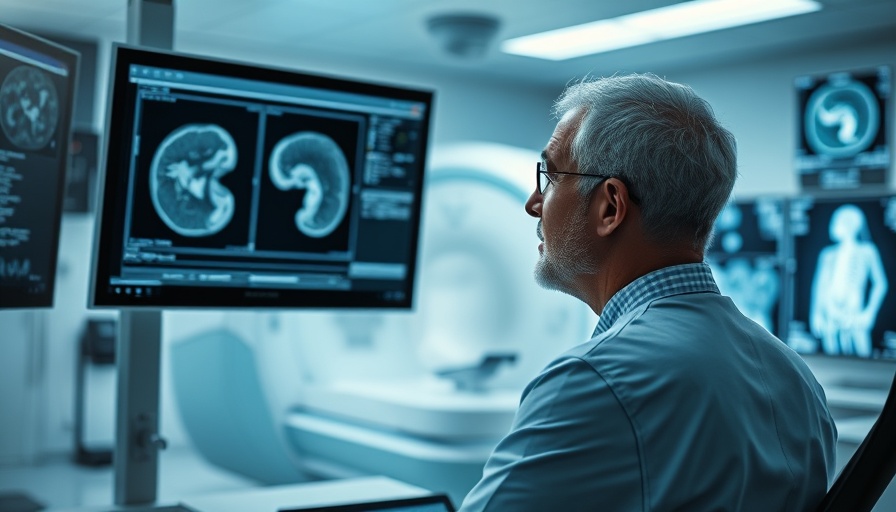
Are CT Scans Causing More Harm Than We Realized?
Recent research from the Institute of Cancer Research in London has raised alarms about the increasing reliance on CT scans in the United States. Analysts estimate that the overuse of these scans could contribute to over 100,000 cases of cancer each year, which could include nearly 10,000 cases affecting children. This alarming statistic emerged from a modeling study published in the Journal of the American Medical Association Internal Medicine and revealed that CT scans might be responsible for about 5 percent of all cancer cases in the U.S., akin to the percentage attributed to alcohol consumption.
The Rising Numbers: Cause for Concern
The U.S. has seen a dramatic spike in the number of CT scans performed—up by 30 percent since 2009. This surge is troubling, particularly when considering that children are more vulnerable to radiation exposure, yet the majority of scans occur in adults. The research highlights how scans conducted on approximately 2.5 million children could lead to nearly 9,700 cancers, pointing to a paradox where the population most at risk is not the one most frequently scanned.
Benefits vs. Risks: Striking the Right Balance
CT scans are undeniably beneficial for diagnosing various medical conditions, including cancer, yet they inherently expose patients to ionizing radiation. Experts emphasize that, while the risk for any individual from a single scan is low, the cumulative risk becomes significant when millions of scans are administered annually. Understanding this balance is crucial for healthcare providers and patients alike. The Institute of Cancer Research advocates for stricter regulations surrounding scan use, urging that they only be performed when clinically justified.
Comparative Perspectives: U.S. vs. UK Regulations
In contrast to the U.S., the UK has instituted a more rigorous protocol for CT scan requests, requiring radiologists to review them and ensuring optimal doses are used. This regulatory caution has resulted in one of the lowest CT scan rates relative to population size among OECD countries—less than 100 scans per 1,000 people versus over 250 in the U.S. This discrepancy underscores potential areas for improvement in how the U.S. manages medical imaging practices.
Empowering Yourself: Questions to Ask Before a Scan
For men aged 35-55, it's vital to feel empowered in healthcare decisions. Before undergoing a CT scan or any major medical procedure, consider asking these relevant questions:
- Is this scan absolutely necessary for my diagnosis or treatment?
- What are the potential risks associated with this scan?
- Are there alternative imaging methods available that carry less risk?
Understanding Risks: Preventing Unnecessary Exposure
By engaging with healthcare providers and recognizing the potential risks associated with CT scans, individuals can take proactive steps in managing their health. Knowledge is a powerful tool; having informed conversations with your doctor can not only clarify the need for certain procedures but also ensure that safer alternatives are explored. Awareness about the health implications of diagnostic imaging is crucial for personal health and wellness.
Conclusion: Let’s Advocate for Health Awareness
As we embrace the potential benefits of technology in medicine, we must also advocate for caution and informed choices. By understanding the implications of procedures like CT scans, we can protect ourselves and our loved ones from unnecessary risks. If you or a family member is considering a CT scan, take the time to discuss it with your healthcare provider thoroughly. Together, let’s ensure that our commitment to health is grounded in informed decisions and balanced perspectives. To promote better health and a proactive lifestyle, start advocating for yourself and others when it comes to medical procedures.
 Add Row
Add Row  Add
Add 




Write A Comment